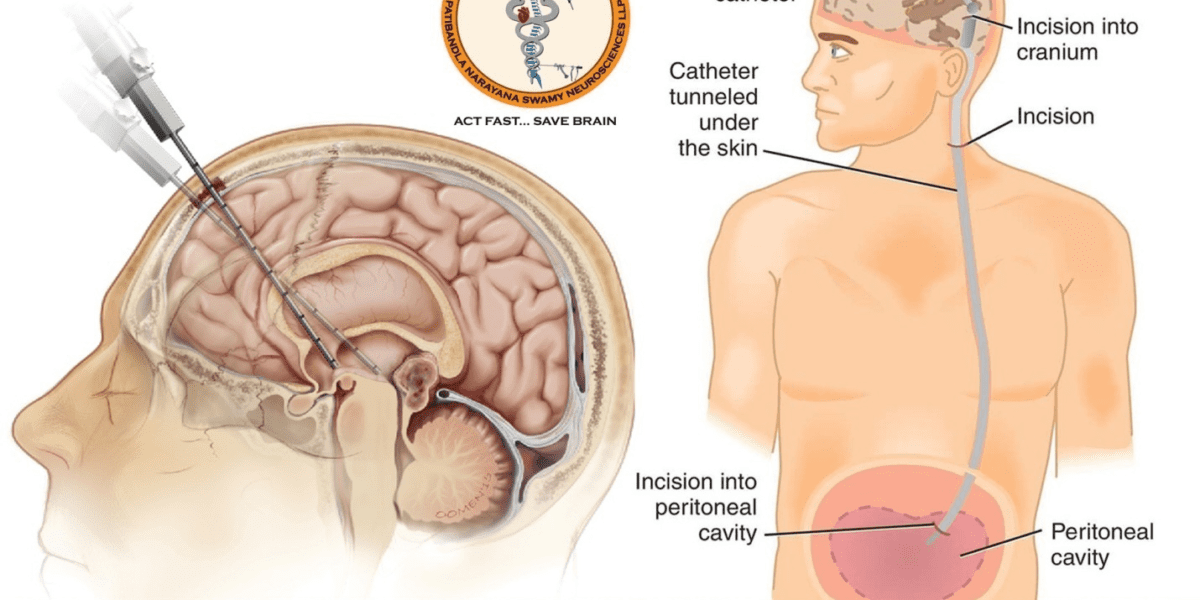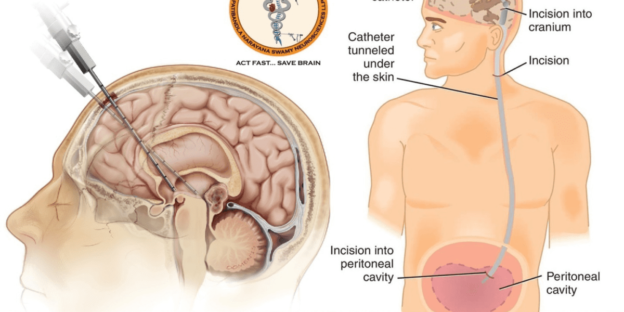
Hydrocephalus is a condition in which excess fluid accumulates in the brain. CSF has several vital functions in the brain, including a shock absorber for the brain and spinal cord, a vehicle for nutrients and removing wastes, and maintaining the constant flow between the skull and spine to regulate pressure. Hydrocephalus occurs due to an increase in the production of the fluid, a decreased rate of CSF absorption, or a block in normal flow through the ventricular system. Hydrocephalus can range from neonates to adults due to different conditions. Hydrocephalus can be caused by several factors, including genetic mutations, meningitis, brain tumors, injuries, etc.
Dr. Rao’s hospital is the best in the country for hydrocephalus treatment. He is also one of the best brain surgeons and neurosurgeons in Guntur. In addition to Dr. Mohana Rao Patibandla‘s excellent medical skills, he is compassionate and caring. He has helped many patients with hydrocephalus and is the best doctor for this condition in Guntur.
A. Causes of hydrocephalus:
1.Genetic mutations: Congenital Hydrocephalus
2.Infections – Communicating Hydrocephalus, Acquired Hydrocephalus
3.Injuries or tumors – Non-communication (Obstructive) Hydrocephalus
4.Normal Pressure Hydrocephalus
B. Symptoms of hydrocephalus: The symptoms vary from person to person and age. Infants and young children more often present with increased intracranial pressure like vomiting, and adults present with difficulty walking, peeing, or thinking.
1. Infants – increase in the size of the head, progressively increasing head circumference, Bulging fontanelle, prominent scalp veins, Sunset sign, Vomiting, Seizures, Sleepiness, Irritability
2. Children and adolescents: Nausea or vomiting, papilloedema, Blurred vision, double vision, Balance abnormalities, developmental delay, Changes in personality, concentration issues, Seizures, Poor appetite, incontinence
3. Adults: Headache, vomiting, gait apraxia, balance issues, incontinence, and vision issues, memory loss, dementia
C. Diagnosis of hydrocephalus:
1. Physical exam: We need to identify the cause and severity of the hydrocephalus. Thorough patient history, clinical examination, and diagnostic tests are essential in diagnosing hydrocephalus.
2. Imaging tests:
Lumbar puncture (spinal tap) is contraindicated in obstructive hydrocephalus.
Computed tomography scan (CT or CAT scan)
Magnetic resonance imaging (MRI)
ICP monitoring
3. Tests for genetic mutations
D. Treatment of hydrocephalus: Treatment of the cause of water retention is the priority. Removing the obstruction caused by the tumor or blood is a direct way of treating hydrocephalus. Indirect treatments for hydrocephalus are the most common mode of treatment, including shunt or endoscopic third ventriculostomy. The shunt will have a catheter and valve, and is flexible tube drains excessive CSF. The shunt stays for a lifetime and keeps the intracranial pressure within normal limits. Endoscopic third ventriculostomy is a new procedure that involves creating a new hole in the floor of the third ventricle as an alternative path for CSF flow. It avoids the presence of lifelong implants in the body.
1. Surgery: Shunting or Endoscopic third ventriculostomy or tumor removal.
2. Medication: Acetazolamide to decrease fluid production.
E. Follow-up
Hydrocephalus is a persistent condition, so continuous follow-up and Follow-up diagnostic tests, including MRIs, CT scans, and x-rays, need to be done to check the shunt function.
Alarming symptoms to see a doctor:
Tenderness, Redness, pain, or swelling of the skin at the incision or along the tube
Fever
Irritability
Nausea, vomiting,
Decreased vision
Headache
Double vision
Drowsiness
Abdominal pain
Return of preoperative neurological symptoms
F. Prognosis
The prognosis depends on the etiology, earlier diagnosis and treatment, and the extent of symptoms. Some patients show good improvement, while others do not. Elevated pressure symptoms will be relieved. In normal pressure hydrocephalus, dementia can be reversed.
The earlier the diagnosis and treatment of hydrocephalus will be, the better the outcome. Improvement of the condition varies significantly for each patient. 50% of the shunts fail at two years; the valve may be clogged and needs additional surgeries. Surgery is often necessary to replace the blocked or malfunctioning portion of the shunt system when a shunt malfunctions. Luckily, most of the complications can be dealt with successfully.
III. Conclusion
Hydrocephalus is a condition in which excess fluid accumulates in the brain. Hydrocephalus can be caused by several factors, including genetic mutations, infections, trauma, tumor, and injuries. Know the signs and symptoms of hydrocephalus so that you can get them diagnosed and treated early.
Dr. Rao’s hospital is the best Neurosurgery hospital in Guntur, and Dr. Mohana Rao Patibandla is the best Neurosurgeon for hydrocephalus, brain surgery, and neurosurgery in Guntur. He is very experienced and skilled in these fields, and he is also very compassionate and caring. If you need treatment for hydrocephalus or surgery for your brain or spine, you should go to Dr. Mohana Rao Patibandla.



